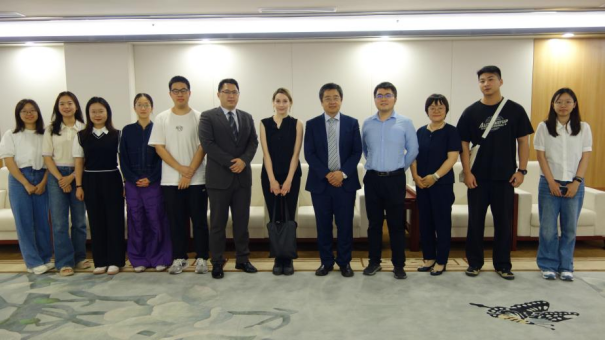On September 4, 2024, the Expert Forum Series of the School of Juris Master, featuring the lecture “Decolonizing Comparative Law: Insights from Alternative Modern Constitutions,” was held in Conference Room 719 of the main teaching building. The keynote speaker for this lecture was Associate Professor Eugénie Mérieau from the University of Paris 1 Panthéon-Sorbonne. The discussant was Dr. Liangjian Wu from the School of Law of China University of Political Science and Law (CUPL). Professor Shenjian Xu, Dean of the School of Juris Master, delivered the opening remarks, and Professor Zhihui Liu, Vice Dean of the School, provided the concluding remarks. The lecture was moderated by Dr. Lin Li of the School of Juris Master with students from the 2022 and 2023 class.
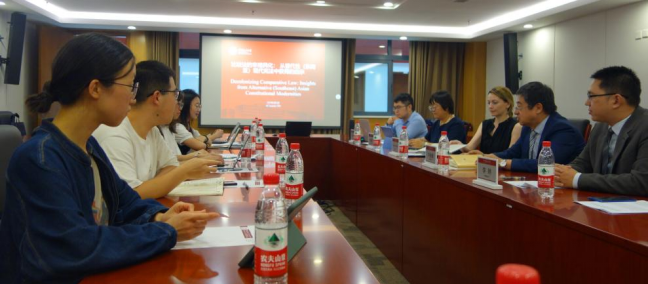
In his opening remarks, Professor Shenjian Xu warmly welcomed Associate Professor Mérieau to the School. He commended her academic contributions to international comparative law and regional studies, noting that her unique perspectives represent a fresh angle in comparative legal research and offer valuable insights for Chinese scholars. He expressed his hope for academic communication between Professor Mérieau, academic members, and students, leading to sparks of innovation in legal research.
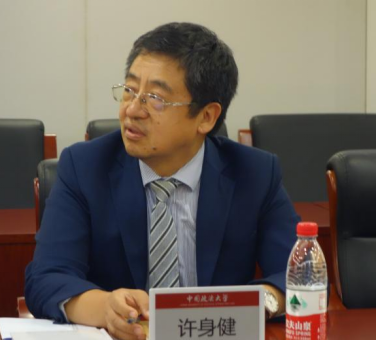
Following this, Dr. Lin Li introduced Associate Professor Mérieau’s current research in comparative law and regional studies, providing a brief overview of the background for the lecture.
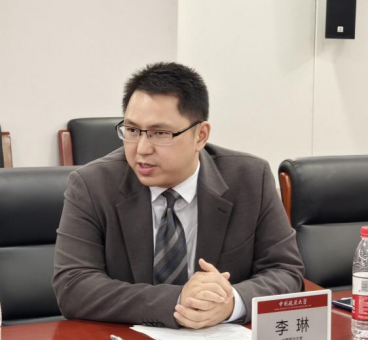
Associate Professor Mérieau’s lecture, based on her published paper titled “Decolonizing Comparative Law: Insights from Alternative (Southeast Asian) Modern Constitutions,” comprised five parts:
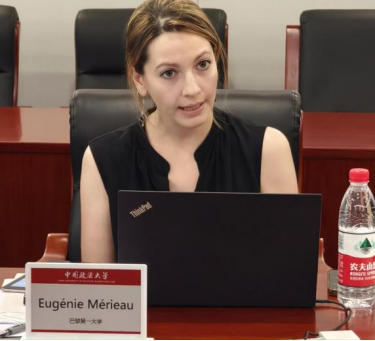
Introduction to the Origins and Genealogy of Comparative Law: She outlined the external framework of comparative law as a discipline.
Deconstructing Legal Orientalism through Regional Studies: She illustrated how regional studies challenge the Western construct of "legal orientalism," which she defined as Western fantasies about Asian legal systems, debunking myths such as the absence of the rule of law in Asia.
Insights from Southeast Asia: Using Southeast Asian countries as examples, she highlighted their legal pluralism, transitional justice mechanisms, and judicialization of politics, suggesting these could provide solutions to challenges faced by Western legal systems.
Three Initiatives Prompted by Regional Studies:
Understanding the development trajectory and marginalization of disciplines.
Initiating theoretical research from Southeast Asia.
Encouraging Southeast Asian countries to reject hierarchical international knowledge production and transition from empirical research to assuming a greater role in theoretical development.
5. Conclusion: She emphasized that contemporary legal studies involve legal pluralism challenging legal monism and transitional justice challenging retributive justice.
Dr. Liangjian Wu provided a commentary on the lecture, expressing agreement with Professor Mérieau’s critique of legal orientalism and her emphasis on regional studies in comparative constitutional research. He noted that these perspectives align with the evolving focus and methodologies in Chinese comparative law studies. In the past, comparative law in China aimed to borrow from foreign laws to address domestic issues, emphasizing legal transplantation. Today, culturalist approaches argue that comparative studies should situate institutions within their historical and cultural contexts, focusing on "local knowledge" and employing Geertz’s concept of "thick description" to analyze constitutional phenomena. The core of comparison lies in mutual understanding rather than mechanical adoption. He also discussed how studying Asian constitutions can enrich general theories of comparative constitutional law and propose new pathways for rule of law development. Additionally, Dr. Liangjian Wu reviewed domestic scholarly discussions on legal orientalism.
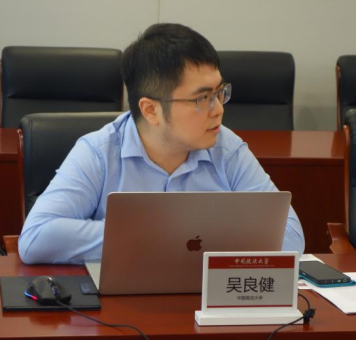
In the subsequent Q&A session, students actively participated, posing questions to which Professor Mérieau responded comprehensively.
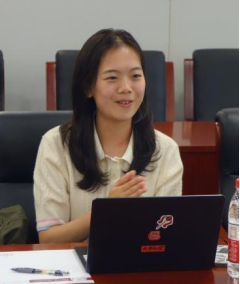
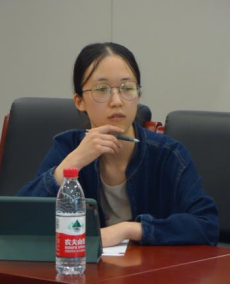
Professor Zhihui Liu delivered the concluding remarks, noting that in an era of deepening globalization, comparative legal research is not merely an academic exercise but a critical avenue for advancing legal development and societal progress. Traditional comparative legal studies, often influenced by colonial histories, are grounded in Western-centric frameworks. She praised Professor Mérieau’s insights and research for aiding in the deconstruction of legal orientalism and contributing to the pluralistic development of global jurisprudence. She expressed hope that Professor Mérieau would continue to make significant contributions to the field of comparative law. Addressing the students, Professor Liu encouraged them to break free from conventional mindsets, embrace openness and inclusivity, and explore the diversity and potential of legal systems to contribute to a fairer, more harmonious world.
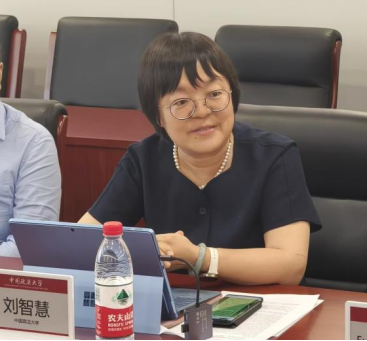
The lecture successully ended with a group photo and applause.
